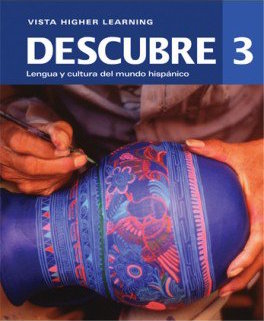
All Solutions
Page 363: Practica
|Answer|Letter|Number|
|–|–|–|
|**(1,f)** |1. estrofa |a. corriente artística |
|**(2,a)** |2. cubismo |b. obra de teatro |
|**(3,c)** |3. tela | c. pince!|
|**(4,e)** |4. esculpir |d. artesano |
|**(5,b)** |5. dramaturgo |e. escultor |
|**(6,h)** |6. novela policíaca | f. verso|
|**(7,d)** |7. artesanía |g. realismo |
|**(8,g)** |8. realista |h. género literario |
| | |
|–|–|
|acuarela / *watercolor*|de mal gusto / *bad taste* |
|al estilo de / *in the style of* |inquietante / *disturbing* |
|argumento / *plot* |llamativo / *striking* |
1. María Fernanda del Olmo estaba locamente enamorada de Roberto Castro, pero vivía su amor en silencio. / *Maria Fernanda del Olmo was madly in love with Roberto Castro, but she lived her love in silence.*
* **Novela rosa.** / *Romance novel*
* **Ciencia ficción.** / *Science fiction*
* **Policiaco/a.** / *Crime novel*
* **La autobiografía.** / *Autobiography*
* María Fernanda del Olmo estaba locamente enamorada de Roberto Castro, pero vivía su amor en silencio. Eran vecinos desde hace ya muchos años, podría decirse que desde que nacieron, pero nunca fueron muy cercanos, a María le gustaba verlo caminar del otro lado de la acera cuando iban rumbo al colegio.
*Let’s translate one last time:*
* *María Fernanda del Olmo was madly in love with Roberto Castro, but she lived her love in silence. They had been neighbors for many years, one could say since they were born, but they were never very close, Maria liked to see him walking on the other side of the sidewalk on their way to school.*
1. ¿Cuál es tu genero literario favorito? ¿Y tu personaje favorito ? ¿Por qué? / *What is your favorite literary genre, your favorite character, and why?*
* **Mi favorito es la novela, me encanta poder leer una historia con temáticas y personajes interesantes.** / *My favorite is the novel, I love being able to read a story with interesting themes and characters.*
* **No lo creo, el arte es totalmente subjetivo a los gustos de cada persona, seria ridículo encasillar el arte en bueno y malo.** / *I don’t think so, art is totally subjective to the tastes of each person, it would be ridiculous to pigeonhole art into good and bad.*
* **Yo sería un poeta, disfruto mucho de la lectura en verso.** / *I would be a poet, I really enjoy reading in verse.*
* **Me gusta más el abstracto, puede llegar a transmitir muchas cosas al mismo tiempo a diferentes personas.** / *I like the abstract more, it can transmit many things at the same time to different people.*
* **Yo diría que la pluma, pues es ahí donde quedan los registros más exactos de los sentires de las gente de tiempos pasados.** / *I would say the pen, because that is where the most accurate records of the feelings of the people of the past remain.*
* **El abstracto, pues no se encasilla en una sola cosa y cada quien puede hacerlo como le guste.** / *The abstract, because it is not limited to a single theme and everyone can do it as they like.*

